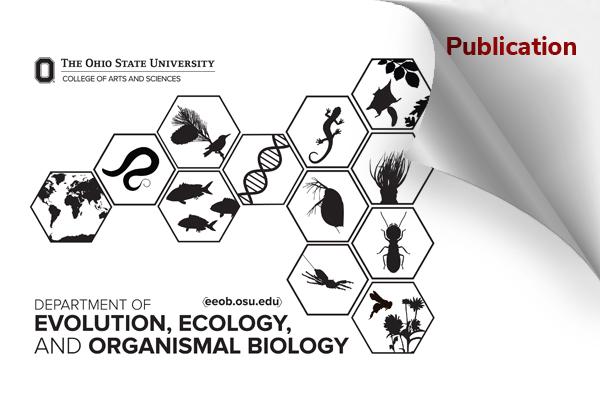EEOB Publication - Bagley

Collaborating With Early Career Researchers to Enhance the Future of Scholarly Publication: A Guide for Publishers
Friederike E. Kohrs, Vartan Kazezian, Robin K. Bagley, Matthieu P. Boisgontier, Samuel Brod, Clarissa F. D. Carneiro, Maria Isabel Casas, Deep Chakrabarti, Roger J. Colbran, Humberto Debat, Vahid Delshad, Natascha I. Drude, Scott C. Edmunds, Felix Fischer, Delwen L. Franzen, Laurent Gatto, Małgorzata Anna Gazda, Biljana Gjoneska, Toivo Glatz, Stefanie Haase, Kaitlyn Hair, Hannah L. Harrison, Johanna Havemann, Friederike Hillemann, Andrew N. Holding, Vinodh Ilangovan, Amelya Keles, Anton Kutlin, Cilene Lino-de-Oliveira, Gary S. McDowell, Honglan Mi, Anne Neumann, Daniel Nüst, Nicholas Outa, Iratxe Puebla, Amin Rahmatali-Khazaee, Roland G. Roberts, Jessica L. Rohmann, Maia Salholz-Hillel, Raul Sanchez-Lopez, Alexander Schniedermann, Robert Schulz, Bianca M. Trovò, Amy E. Vincent, Tracey L. Weissgerber. 2025. DOI: 10.1002/leap.2028
Abstract
The scholarly publishing system is adapting to many changes, including open access and open data mandates, artificial intelligence, and other new technologies. Members of the research and publishing communities are working to establish a more equitable, fair, and rigorous system that serves researchers' evolving needs. Early career researchers (ECRs) are drivers of change, and publishers may wonder why and how they should involve ECRs in shaping the future of scholarly publishing. We held a virtual unconference to explore this issue with publishers and ECRs who were working to improve publishing. Some participants sought to improve peer reviewer or editor performance, whereas others sought to improve the publishing system itself through iterative or transformative change. Strategies for collaborating with ECRs to shape the future of scholarly publishing included peer review programmes, editorial programmes, ECR-led journals, ECR boards and committee representatives, and other ECR-initiated activities. ECRs particularly wanted to see three things improved: (1) Sharing research outputs other than publications, (2) addressing technological limitations to create systems that meet the research community's needs and facilitate knowledge advancement, and (3) fostering diversity, equity, inclusion, and accessibility. We offer tips for publishers on how to collaborate with ECRs to enhance scholarly publishing, appeal to and learn from younger researchers, and better meet researchers' needs.
